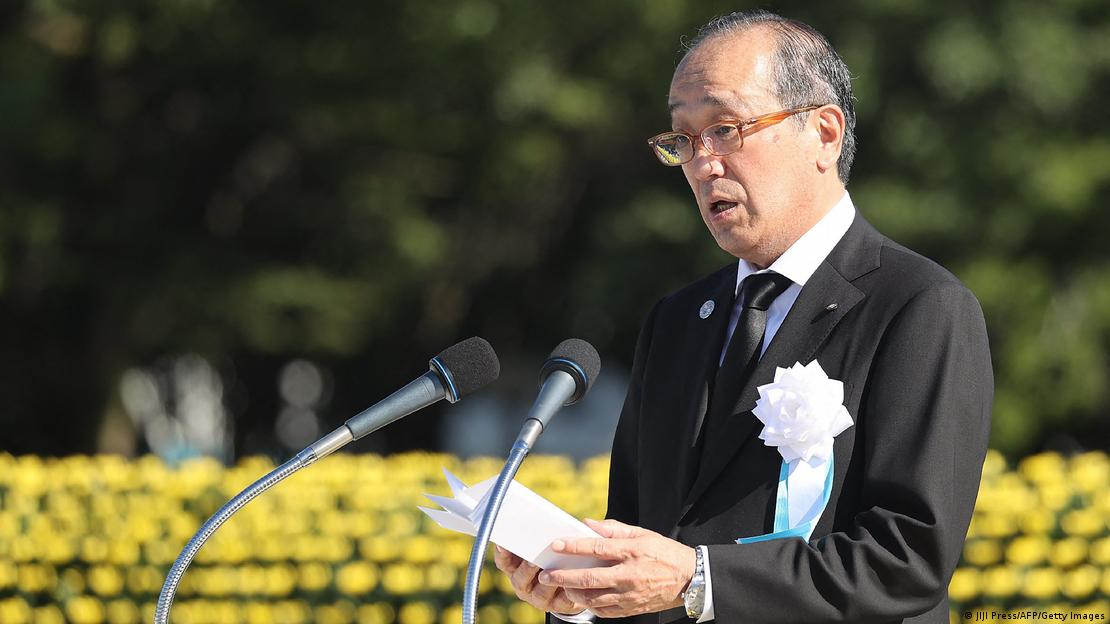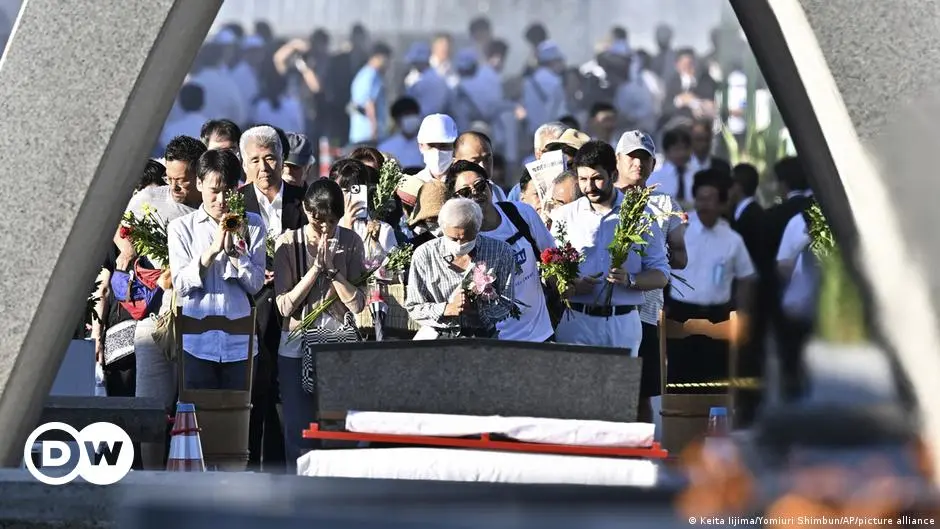Japan on Sunday commemorated the 78th anniversary of the atomic bombing of Hiroshima in the final phase of World War II.
Considering the growing nuclear threat worldwide, the mayor of Hiroshima Kazumi Matsui called for the abolition of nuclear weapons and described the nuclear deterrence policy of G7 as “folly.”
“They must immediately take concrete steps to move us from the dangerous present to our ideal world,” he said as a peace bell rang on Sunday at 8:15 a.m. — exactly when on August 6, 1945, US bomber Enola Gay set off the world’s first atomic bomb dropped on a population center.
This year, the G7 summit took place in Hiroshima, which happens to be Japan Prime Minister Fumio Kishida’s home constituency

“Leaders around the world must confront the reality that nuclear threats now being voiced by certain policymakers reveal the folly of nuclear deterrence theory,” Hiroshima Mayor Kazumi Matsui said at the ceremony which was also attended by Kishida.
At the memorial ceremony about 50,000 people, including aging victims who survived the bombing, gathered and observed a moment of silence.
Drums of nuclear war beating again: Antonio Guterres
The anniversary of the Hiroshima bombing was commemorated amid the growing threat of nuclear weapons propelled by Russia’s invasion of Ukraine.
The issue poses a tricky balancing act for Kishida. Japan is traditionally an advocate of nuclear disarmament, in no small part because of the legacy of the attacks on Hiroshima and then Nagasaki three days later.
However, it also supports the partly nuclear-armed G7’s group stance that members with atomic weapons shall retain them for as long as they’re a necessary deterrent against other nuclear powers.
“World leaders have visited this city, seen its monuments, spoken with its brave survivors, and emerged emboldened to take up the cause of nuclear disarmament,” he said in remarks read by a UN representative. “More should do so, because the drums of nuclear war are beating once again.”
 The American atomic bomb which was dropped on Hiroshima was nicknamed “Little Boy.” It is thought to have killed as many as 140,000 people by the end of 1945. Three days later, the US dropped a second bomb on Nagasaki. It is believed to have killed up to 70,000 over the next four months.
The American atomic bomb which was dropped on Hiroshima was nicknamed “Little Boy.” It is thought to have killed as many as 140,000 people by the end of 1945. Three days later, the US dropped a second bomb on Nagasaki. It is believed to have killed up to 70,000 over the next four months.
A few days after the bombings, on August 15, Japan made an official announcement that it was surrendering. Soon after, on September 2, Japan formally capitulated, bringing an end to World War II in Asia.
Whether using the bombs brought about a speedier, and possibly even more bloodless, end to the war or whether it was an ultimately unnecessary show of force remains a fierce debate among historians almost eight decades on



Bad actors like North Korea.
The US only used nukes to avoid a bloodbath from one of the most vile regimes in history.
I don’t really get all this ‘memorial’ stuff for Japan. They were doing disgusting things during WW2 and needed to be put in their place. They were literally on par with nazi germany with their human rights abuses. The experiments they did on people are… horrifying.
I’m glad we domesticated that animal and shudder to think what the world would look like if we haven’t. I feel bad for the innocent people who didn’t support the war, but I wonder exactly how many of them were caught in the blast.
Who will put the US into their place after 30 years of wars/bombings/murders in the Middle East?
Not even remotely comparable. You should read up on japanese history during WW2 if you think otherwise.